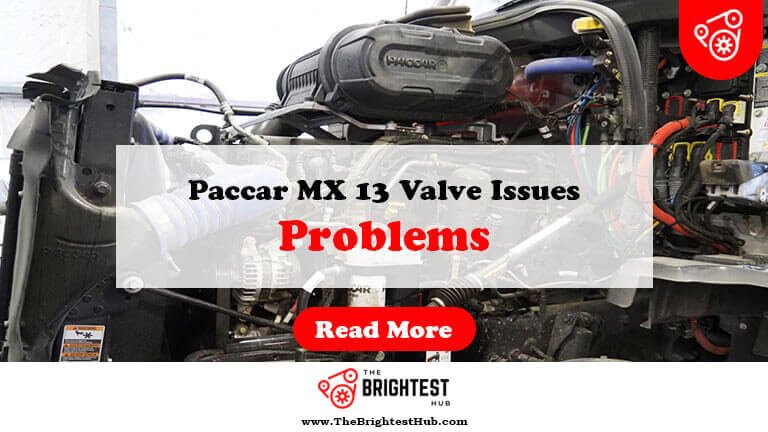Triangle Tube Boiler Problems: Quick Fixes & Solutions
Triangle Tube boilers may face issues like improper ignition, water leaks, or error codes. Regular maintenance can help prevent these problems and ensure optimal performance.
Triangle Tube boilers are popular for their efficiency and reliability in heating systems. Homeowners appreciate their energy-saving features and compact design. Despite their advantages, these boilers can encounter various issues that affect performance. Understanding common problems and their solutions is essential for maintaining comfort in your home.
Regular inspections and timely repairs can prevent minor issues from escalating into major headaches. Knowledge of troubleshooting techniques empowers users to address problems effectively. This guide provides insights into common Triangle Tube boiler problems and offers tips for resolving them. Ensure your heating system runs smoothly and efficiently by staying informed about potential issues.
Introduction To Triangle Tube Boilers
Triangle Tube boilers are popular choices for heating homes. They offer efficiency and reliability. Many homeowners trust them for warmth and comfort.
Popularity In Home Heating
Triangle Tube boilers gained fame due to their design and performance. They are known for:
- High Efficiency: They use less fuel, saving money.
- Compact Size: They fit easily in small spaces.
- Durability: Built to last with quality materials.
Many homeowners prefer these boilers over traditional systems. Their ability to provide consistent heat appeals to many families.
The Importance Of Regular Maintenance
Regular maintenance keeps Triangle Tube boilers running well. Here’s why maintenance matters:
- Prevents Breakdowns: Regular checks catch problems early.
- Boosts Efficiency: Clean systems use less energy.
- Extends Lifespan: Well-maintained boilers last longer.
Homeowners should schedule annual maintenance. This simple step ensures safety and efficiency.
Common Issues With Triangle Tube Boilers
Triangle Tube boilers are popular for their efficiency and reliability. However, they can face various issues. Understanding these problems can help in timely repairs and maintenance. Here are some common issues you might encounter.
Ignition Failures
Ignition failures can cause your boiler to stop working. This issue might arise due to:
- Faulty ignition electrode
- Dirty burners
- Low gas pressure
If you notice your boiler not igniting:
- Check the power supply.
- Inspect the ignition electrode.
- Clean the burners if they are dirty.
Consider calling a technician for persistent issues.
Leaks And Drips
Leaks and drips can lead to significant water damage. They often occur due to:
- Loose connections
- Corroded pipes
- Worn-out seals
To manage leaks:
- Identify the source of the leak.
- Tighten loose connections.
- Replace corroded pipes and seals.
Ignoring leaks can result in costly repairs.
Pressure Problems
Pressure issues can affect boiler performance. Common causes include:
- Faulty pressure relief valve
- Blocked expansion tank
- Air in the system
To address pressure problems:
- Check the pressure gauge.
- Inspect the pressure relief valve.
- Bleed air from the system.
Maintaining proper pressure is essential for efficiency.
Troubleshooting 101: Quick Fixes
Triangle Tube boilers can face issues. Quick fixes can help restore functionality. This guide covers easy troubleshooting steps.
Resetting The Boiler
Sometimes, resetting the boiler solves the problem. Follow these steps:
- Locate the power switch.
- Turn off the boiler completely.
- Wait for at least 5 minutes.
- Turn the power back on.
- Check for any error codes on the display.
Resetting can clear minor faults. Make sure to observe any changes.
Checking The Power Supply
A reliable power supply is essential. Check these items:
- Ensure the boiler is plugged in.
- Inspect the circuit breaker. Reset it if tripped.
- Check for blown fuses.
Use a multimeter to test voltage:
| Voltage Level | Action |
|---|---|
| 120V | Power supply is fine. |
| Below 120V | Investigate power issues. |
Make sure the power is stable. This can prevent further problems.
Inspecting The Thermostat
The thermostat controls the boiler’s temperature. Follow these steps to inspect:
- Check the thermostat setting. It should match your desired temperature.
- Look for any loose wires. Tighten them if needed.
- Replace batteries if it’s a battery-operated model.
A faulty thermostat can cause heating issues. Consider replacing it if problems persist.
When To Call A Professional
Triangle Tube boilers are reliable, but problems can arise. Knowing when to call a professional is crucial. Some issues require expert help. Delaying repairs can lead to more significant damage.
Assessing The Problem
Start by identifying the symptoms of your boiler issues. Common problems include:
- No hot water
- Strange noises
- Unusual smells
- Fluctuating temperatures
Check the following:
- Look for leaks around the unit.
- Check the pressure gauge. It should be between 12-15 psi.
- Inspect the thermostat settings.
Document any unusual behavior. This information helps professionals diagnose the issue.
Safety First: The Risks Of Diy
Attempting DIY repairs can be dangerous. Triangle Tube boilers operate under high pressure and temperature. Risks include:
- Burns from hot surfaces.
- Explosions from gas leaks.
- Electrical shocks from improper handling.
Professional technicians have the right tools and training. They ensure safe and effective repairs. Don’t compromise your safety.
Preventive Measures For Boiler Health
Keeping your Triangle Tube Boiler in top shape is crucial. Preventive measures help avoid costly repairs. Simple steps can extend the life of your boiler.
Regular Service Appointments
Scheduling regular service appointments is vital. A certified technician can spot problems early. Here are key tasks done during service:
- Inspect the burner and flames.
- Check for leaks and corrosion.
- Clean the heat exchanger.
- Test safety controls.
Regular maintenance helps ensure efficiency. It also keeps your home safe. Aim for at least once a year.
Maintaining Water Quality
Water quality directly affects boiler performance. Poor water can lead to buildup and damage. Follow these steps to maintain water quality:
- Test water hardness regularly.
- Add water treatment chemicals as needed.
- Flush the system to remove sludge.
Clean water improves heat transfer. This boosts efficiency and reduces costs. Use a water softener if necessary.
Upgrading Components
Upgrading old components can enhance boiler performance. Consider these upgrades:
| Component | Benefits |
|---|---|
| High-Efficiency Burner | Increases fuel efficiency. |
| Smart Thermostat | Improves temperature control. |
| Variable Speed Pump | Reduces energy consumption. |
Investing in these upgrades saves money long-term. Enhanced components also reduce breakdowns. They keep your boiler running smoothly.
Navigating Warranty And Support
Understanding your warranty is crucial for Triangle Tube boiler owners. Knowing your rights helps you resolve issues quickly. Support can make a big difference in your experience.
Understanding Your Coverage
Triangle Tube offers various warranty options. The standard coverage includes:
- Residential Use: Usually 10 years on heat exchangers.
- Commercial Use: Typically 5 years on heat exchangers.
- Parts Warranty: Generally 1 year on all parts.
Check your warranty card for specific details. Each model may have unique terms. Read the fine print for exclusions and limitations.
How To Claim Warranty Service
Claiming warranty service involves a few steps. Follow these guidelines:
- Contact your local dealer or installer.
- Provide proof of purchase.
- Explain the issue clearly.
- Follow any instructions given.
Keep all records related to your boiler. This includes receipts and service reports. They help expedite the warranty process.
For urgent issues, call Triangle Tube’s support line. They provide quick responses and solutions. Visit their official website for additional resources.
Advanced Solutions For Persistent Problems
Triangle Tube boilers are efficient but can face challenges. Persistent problems can disrupt performance. Advanced solutions address these issues effectively. Below are key methods to improve your boiler’s operation.
System Flushing Techniques
Flushing your system can remove dirt and debris. This improves the efficiency of your Triangle Tube boiler. Follow these steps for an effective flush:
- Turn off the boiler and allow it to cool.
- Close the water supply valve.
- Connect a hose to the drain valve.
- Open the drain valve and flush the system.
- Close the drain valve and remove the hose.
- Open the water supply valve and refill the system.
Consider these benefits:
- Improved heat transfer
- Reduced wear on components
- Enhanced overall efficiency
Component Replacement Options
Replacing faulty components can restore boiler performance. Here are common parts to consider:
| Component | Signs of Failure | Replacement Options |
|---|---|---|
| Circulator Pump | No water circulation | Upgrade to a variable-speed pump |
| Expansion Tank | Water hammer noises | Replace with a larger tank |
| Heat Exchanger | Reduced heating efficiency | Install a high-efficiency model |
Replacing components can lead to:
- Improved energy efficiency
- Lower maintenance costs
- Extended boiler lifespan
Future Of Home Heating
The future of home heating is rapidly changing. Innovations aim to improve efficiency. Homeowners seek sustainable and cost-effective solutions. Advanced technology will shape this industry.
Innovations In Boiler Technology
New boiler technologies are emerging. These innovations focus on efficiency and sustainability.
- Condensing Boilers: Capture waste heat for better efficiency.
- Smart Boilers: Use IoT for remote monitoring and control.
- Hydronic Heating: Offers even heat distribution.
These advancements reduce energy consumption. They also lower utility bills. The market is shifting towards user-friendly designs.
| Technology | Benefits |
|---|---|
| Condensing Boilers | Higher efficiency, lower emissions |
| Smart Boilers | Remote access, real-time updates |
| Hydronic Heating | Comfort, energy savings |
Making Sustainable Choices
Homeowners are prioritizing sustainability. They want eco-friendly heating solutions. Choosing the right boiler matters.
- Energy Star Rated: Look for certified models.
- Biomass Boilers: Use renewable resources.
- Solar Water Heating: Harness solar energy.
These choices reduce carbon footprints. They support a healthier planet. Investing in sustainable options pays off long-term.
Frequently Asked Questions
What Are Common Triangle Tube Boiler Issues?
Common issues include ignition failure, water leaks, and inconsistent heating. Regular maintenance helps prevent these problems.
How To Troubleshoot A Triangle Tube Boiler?
Check error codes, inspect connections, and ensure proper gas supply. Consult the manual for specific troubleshooting steps.
Why Is My Triangle Tube Boiler Making Noise?
Noises may indicate air in the system or a failing pump. Addressing these issues promptly can prevent further damage.
How Often Should I Service My Triangle Tube Boiler?
Annual servicing is recommended to ensure efficiency and prolong the lifespan of your boiler.
Can I Repair My Triangle Tube Boiler Myself?
Basic maintenance can be DIY, but complex repairs should be handled by a certified technician for safety.
Conclusion
Triangle Tube boilers can face various issues that affect performance and efficiency. Regular maintenance and prompt troubleshooting are crucial. Understanding common problems helps you address them quickly. For optimal operation, always consult a professional. Keeping your system in top shape ensures comfort and reliability in your home.
Stay informed to prevent future complications.







